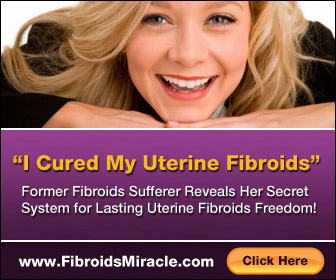Growth Issues: Can Uterine Fibroids Make Your Abdominal Organs Bigger?
Women who observe that their abdomens are growing bigger unusually should take it as a warning sign. It could be a result of uterine fibroids. That’s because these benign tumors are known to cause distention and bloating when they press against the uterus, stomach, bladder, and intestines. Unfortunately, the problem with the enlargement goes beyond the physical appearance. Complications and other health issues may arise from the enlargement caused by the fibroids.
Uterine Enlargement
Fibroids is one of the most common causes of uterine enlargement. Bigger fibroids as well as multiple fibroids growths could cause the uterus to grow to as big as a 6-month pregnancy. A doctor’s examination is enough to detect an enlarged uterus. Aside from a bigger belly, some of the other symptoms to watch out for are: abdominal pain, bloating, constipation, difficult urination, and menstruation problems.
The Stomach, Bladder, and Intestines
Fibroids and uterine enlargement can put pressure on the surrounding areas, specifically the stomach, bladder, and intestines. Such pressure could lead to pain and inflammation. Sometimes, they even cause blockages that result in excess gas and waste products that are supposed to be flushed out of the body. These cause more serious problems like hemorrhoids and kidney damage.
Reducing Fibroids and Uterine Enlargement
It takes some time to reduce the size of fibroids no matter what kind of treatment you opt for. There are natural remedies, hormonal therapies, and medications that could be prescribed for fibroids. Some of these solutions are mildly effective while some come with even more side effects. In cases where the health and well-being of the patients are compromised, surgical procedures are recommended as an immediate and permanent cure.
In as far as fibroids are concerned, prevention is better than cure. Most women are likely to have them. Any woman of child bearing age would benefit from taking better care of her uterine health as early as possible. Not doing so can significantly increase her chances of suffering from a bad case of uterine fibroids. The probabilities are even higher if her mom, grandmother, or sister is diagnosed with fibroids.
Your Course of Action
The first thing to do is to go to a gynecologist and have a checkup. This will give you a baseline of your state of health. If you are feeling any symptoms, you can discuss them with your doctor and address them right away. If you need imaging and laboratory tests for further assessment, they can be ordered by your doctor as well.
Needless to say, any findings should warrant immediate attention and treatment. If your findings indicate that you are well and healthy, your next step should be to check if your lifestyle and diet are friendly to your uterus. Stress and unhealthy diets are likely to damage your body and disrupt your hormonal balance at some point, increasing your chances of developing fibroids.
It’s not all that complicated to shift to a lifestyle and diet that’s good for your uterus. Avoid stress, get enough rest, and stay away from vices. Eat a diet that’s rich in anti-oxidants, vitamins, and minerals. Avoid red meats and stick to lean proteins. Load up on your greens and grains too. These simple steps can already make you less predisposed to getting uterine fibroids and suffering from an enlarged uterus, stomach, bladder, or intestines.


